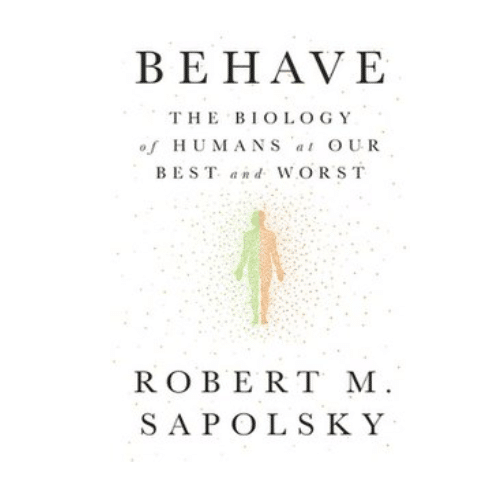Dr. Andrew Huberman Hosting Dr. Robert Sapolsky
Dr. Robert Sapolsky, Ph.D., a distinguished Professor of Biology, Neurology, and Neurosurgery at Stanford University, brings his extensive knowledge and research to our discussion today.
The dialog begins with a discussion of stress. The favorable or detrimental aspects of stress are usually a function of duration. The short-term benefit of stress is improving our focus to accomplish tasks such as avoiding danger and dealing with situations requiring our immediate attention. The long-term effects are diminished quality of life and health. The right amount of stress can be fun, such as a scary movie or a roller coaster ride.
The conversation moved on to testosterone and common myths and truths. Testosterone does not cause aggression. It lowers the threshold and amplifies preexisting levels of an individual’s tendency toward aggression.
Aggression and sexual activity raise the levels of testosterone, but the levels before such activities are not elevated and don’t predict the behavior. Elevated testosterone levels are a response and not a cause. Your brain is not very sensitive to testosterone levels.
We delve into the topic of estrogen supplements, which have shown to enhance cognitive brain function, increase longevity, and protect against dementia and cardiovascular disease. However, it’s crucial to note that these supplements should be administered to maintain a normal level before, during, and after menopause. Delaying their use after menopause can lead to adverse effects. This nuanced understanding is key to making informed decisions about our health.
It was pointed out that testosterone levels, sperm counts, and fertility have been dropping in males for some time. No convincing, positive correlates have been found.
The discussion returned to stress and how the individual can mitigate it. One needs to develop the confidence to acquire a sense of control and management. This can buffer the stress so that its effects will be less damaging. Just calling for an appointment with a professional can help even before the meeting. The power of perceiving stress as manageable can have a positive effect. Conscious thoughts can initiate an autonomic response. Examples were given. Working with others to mitigate stress can include mindfulness, meditation, and prayer.
Content link: Dr. Robert Sapolsky: Science of Stress, Testosterone & Free Will | Huberman Lab Podcast #35 – YouTube
Before commenting, please review our privacy policy: www.findnewcontent.com/privacy/



